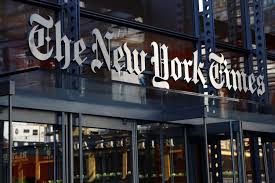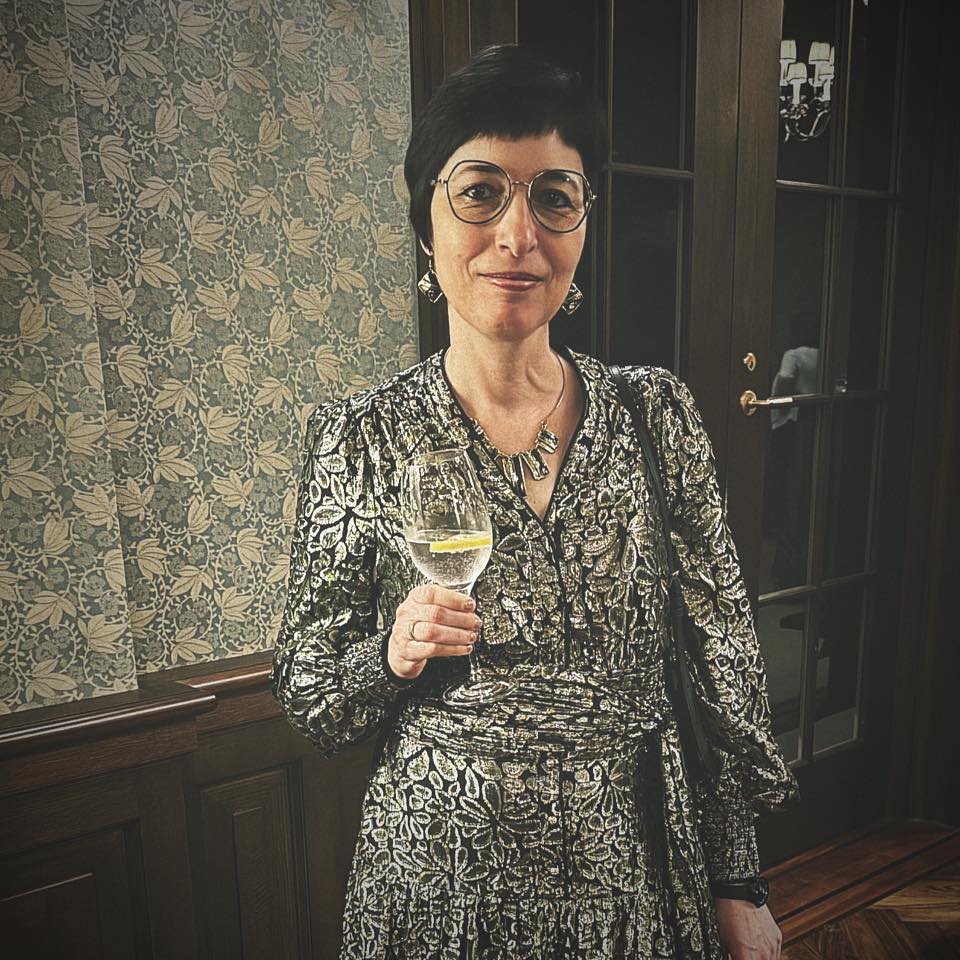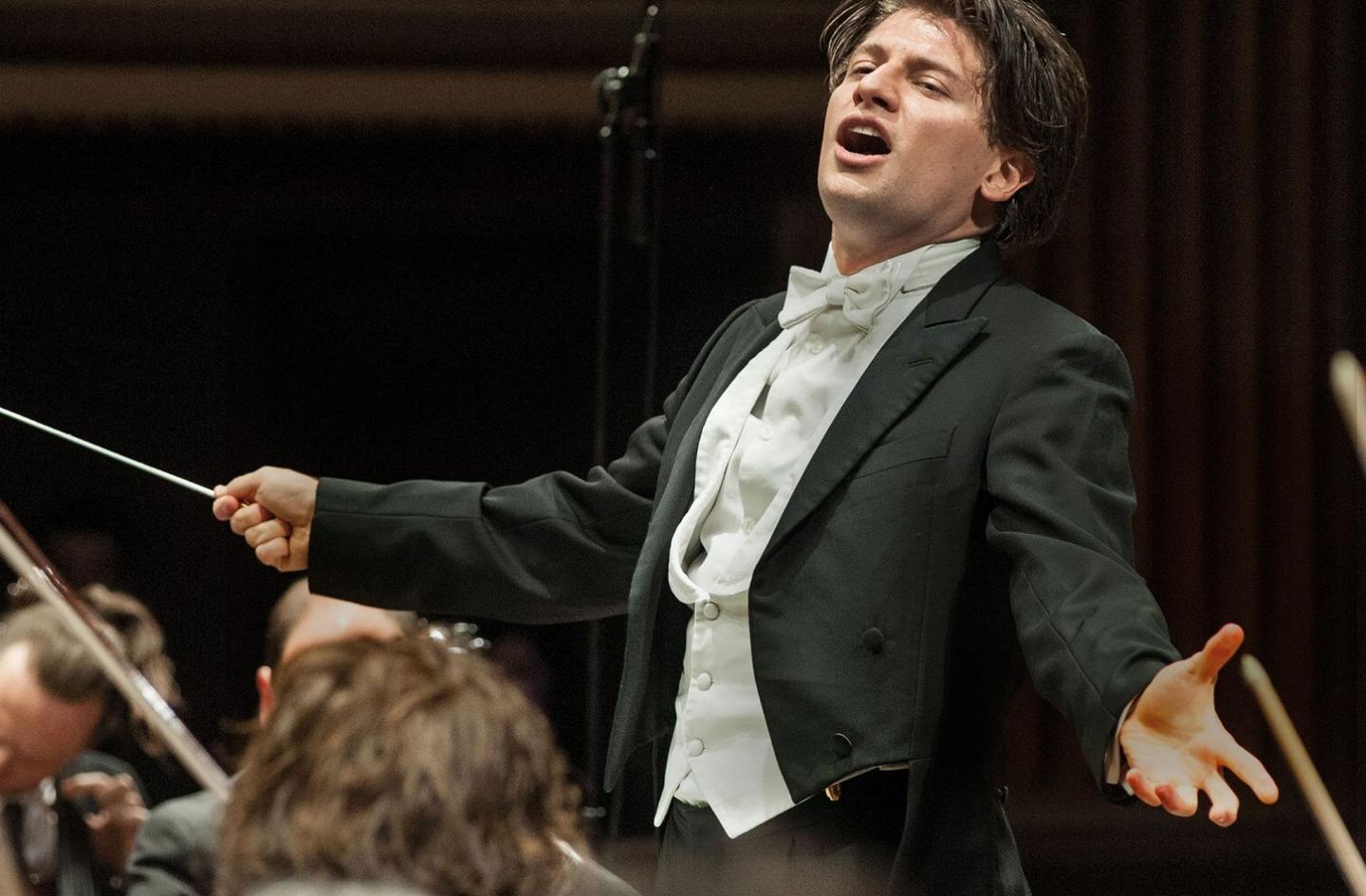Anthony Tommasini’s last lines
NewsAfter 21 years as chief classical music critic of the New York Times, Tommasini winds up with these words:
Whenever I have spoken to students or emerging professional performers about my work, I say that what I do is not as hard — nor nearly as essential — as what they do, but that we’re on the same side, that we all want music to thrive, and that I can help.
That’s what I’ve tried to do.
Read his full farewell piece here.
A successor has yet to be named.






In addition to his knowledge, I very much appreciated the human decency and warmth of Anthony Tommasini as have many musicians.
My reaction to Tommasini’s farewell piece (somehow I suspect there will be future A.T. appearances in the pages of the NYT) blows hot and cold just like my reactions to his writings over the years.
I would agree in general that the classical music world at its core is painfully hidebound in a way other comparable arts are not. People want to see the newest plays, read the newest books, go to gallery openings with new works by new artists, patronize modern art museums, see the latest creations of new architects – in those fields of art those are the mainstream. Those arts put the priority on creation. In classical music the patrons of the new , of creation, are something of a fringe, moreover a very partisan fringe which is deeply splintered and indeed can be contemptuous of those who do not toe this or that line. And in that sense the new music types do resemble the new art, new theater, new literature types.
So let’s say this for the good old fashioned symphony subscription which A.T. would like to do away with.
Assuming an orchestra which does at least the average amount of new music, however pathetic that average may be, nonetheless there are few other fields in art where people willingly pay so much money knowing in advance that some of what they are going to hear they either know they will not like or strongly suspect they will not like (repertory theater subscriptions are the only comparable example I can think of), because it will be cobbled together with much that they do like. It is the subscription that forces people to be exposed and to endure and sit through it. That, and not “modern music” societies, is how works like the Berg Violin Concerto have slowly but steadily clawed their way into the standard repertoire, and if starting the evening with the Rienzi Overture is a way to get there, then do that.
Do away with the subscription concept as A.T. urges and I predict, or at least greatly fear, that the “problem” of new classical music will get worse not better. The fringe will always be there and bless their hearts. But at some point you need numbers because the classical presentation format – the sheer number of skilled professionals assembled and expecting to be decently compensated, whether it is a quartet or a full orchestra — needs the numbers.
“People want to see the newest plays, read the newest books, go to gallery openings with new works by new artists, patronize modern art museums, see the latest creations of new architects – in those fields of art those are the mainstream.”
Define “people.”
The specific problem with the subscription concept (and I write as a full-season subscriber) is that it is no longer selling well. More and more people are making last-minute decisions about which events to attend, rather than committing in advance to a season’s worth of concerts. Tommasini’s suggestion is not because he thinks the subscription series is an inherently bad idea for the art form, but because something else is needed to increase sales — no matter the staleness or freshness (or, of on prefers, the greatness or up-to-dateness) of the repertoire. Perhaps (just perhaps) flash-mob marketing might sell more tickets… and unless symphonic music is to become mostly funded by the oligarchs, a way to sell more tickets (and broaden the donor base) must be found.
As someone who has subscribed in the past and unfailingly lost money on the procedure, and knowing from the inside of orchestra management the ins and outs of subscription policy, the biggest problem in subscription sales is the recalcitrance of too many orchestras in making up the potential loss when a person has to change plans.
The pandemic has forced a lot of institutions to take another look at how they bleed their subscribers, but with the four orchestras I have worked for, two in the US, two in Canada, I can tell you that the word that they refuse to countenance is “refund.”
Exchanges MAY work, especially if there are a couple of playings of the same concert and the problem occurs on the first date and the second is available. Same season exchange can work if the problem is early in the season. Some orchestras I know used to make their credit scheme, where nothing had to be chosen upon cancellation, flexible; the value could be filed till further notice, openly available. But when they decided to make it within the same season only, the problem of a late-season issue rose again.
Most subscribers end up giving tickets away, or eating the loss. Do that often enough ad you ain’t going to subscribe again. And orchestras are apparently operating on such narrow margins that the possibility of digging into cash reserves and giving refunds appals them.
Until they learn to live with it, they are going to keep losing subscribers.
And until they focus as much on retention of those they do have and are not so rapacious in their emphasis on new ones, they are not going to engender much loyalty.
The major problem in the orchestras I worked for was the same in most cases (one was in a smaller community and had better attitudes on everything, though basically began from the same model). They see subscribers solely as a revenue source. Subscribers choose to do so because they enjoy the art of great music, they enjoy the social aspect of hearing it in a communal environment, and they feel they are investing in the worthwhile cause of providing orchestral music in their community.
If subscription managers looked at places like galleries and museums, which have members, they might learn a few things.
His writing is so irritating to the very end.
What SHOULD change is that the NY Times should pick a successor who is more in tune with the masses of classical music fans, and less highbrow.
And what makes you think that your opinion represents the “masses”? Maybe you’re the one that needs to be more in tune?
Common sense.
Observing the reaction of thousands of people in the audience at the Phil or the Met, for a program that was to be repeated several times for thousands more people who would also be affected by such music the same way.
You thought he was highbrow? Perhaps compared to John Rockwell.
Although I expect to read a lot of Tommasini-bashing here, you won’t get from me. All critics have their strong and weak areas, all critics have their likes and dislikes, and all critics have their biases. As a concert goer and as a reader I want them to be consistent, readable, and to explain why they are taking a particular point of view.
I haven’t always agreed with him, but why should I? He writes clearly and intelligently, and the oft-expressed opinion in this space that he is a shill for the Metropolitan Opera is ludicrous.
He is a distinguished critic who has had a long career writing for what is still the best and most authoritative American newspaper.
I’m sure the public will miss him as soon as his successor named.
Finally!!
and directly from the critic’s pen, it ain’t over ’til the fat lady sings, which means
he will still be writing for the Times but not as much as before, because he has his own projects
It would have been nice had he issued a mea culpa for ignoring/covering up James Levine’s issues for 15 years. And I’m not just referring to what got Jimmy fired.
There’s no need for Tommasini to apologize; he himself did not ignore or cover up the allegations against Levine.
“People have asked me over the years whether I had heard talk about Mr. Levine’s private behavior. I had, but just vague rumors. I knew that reporters at The Times and other publications had done some investigating over the years and turned up nothing concrete.“ (https://www.nytimes.com/2017/12/05/arts/music/james-levine-met-opera-critic.html)
A lot of money went into keeping this hidden for as many decades as it was; Tommasini’s not to blame for that.
Also critics and reporters are not the same thing. Tommasini should have told reporters what he had heard and that this might be worth looking into (and it’s a little unclear if that is what happened), but a nuanced symphonic ear never broke Watergate. You want to rely on the many experienced investigative reporters in your building for that and offer any insight you have when asked.
“…not nearly as essential…” — that would be a mild understatement indeed. To even think of comparing what it takes to be a performer on a high level with merely commenting on other people’s performances is equating two things that essentially have nothing in common. People who are able to form a musical opinion don’t need critics, and those who can’t make their own musical judgment won’t be helped by a review: it will essentially fly above their heads. No words could possibly convey what music is about, because it is first and foremost an experience which each listener needs to make their own. No words could possibly capture the essence of a musical work, as there is no possible substitute for the work itself and for the unique experience such work conveys. Instead of reading reviews, prospective listeners should embark on a path of self-education and listen abundantly without judging, without preconceptions, allowing themselves to experience whatever they might be experiencing. In doing so, they would be much better served than by blindly following the pontifications of self-styled critics. There may have been a place for criticism at a time when musical education was still valued and actually offered in practice. However, in a time in which such education has essentially vanished, the role of the critic has become little more than that of middleman for an entire industry. For those who believe that they can’t rely on their own judgment in order to form a musical opinion, I would submit that this is the only way they will be able to possibly acquire the competence they aspire to achieve, and that reading reviews, for the most part, is an unnecessary distraction.
There is much wisdom here. Another concept to keep in mind is how music writers may sometimes assist music students and music lovers by describing the intent of innovative composers, deploying their unique writing skills, especially when that intent is well known to the writer, providing keys to appreciation and understanding as opposed to evaluating music with criteria that doesn’t apply, being out of context.
http://azuremilesrecords.com/pointersbecoming.html
He has always encouraged exploration and deep listening, to all corners of the repertoire. About 15 years ago, I was browsing the opera section of the old Tower Records at Lincoln Square, trying to decide (on my limited student budget) whether to purchase Ligeti’s “Le Grand Macabre” or Messiaen’s “Saint François.” A bespectacled man, noticing the two recordings between which I was choosing, remarked that it would be worth it to get both. I recognized him as Tommasini, and it turned out that he was right.
While I was never impressed with him, Tommasini hit rock bottom with his advocacy of doing away with blind auditions in the name of “equity.”
The form of Tommasini’s NYT’s swan song is fine. But the faux ‘balancing’ of names in lists is a sign of modern times that is almost cringe-inducing. His quartet of exciting artists who keep arriving are DiDonato, Jennifer Koh, Igor Levit, and Davone Tines. I have about 50 CDs that feature the first 3 artists, and none of Tines. Never heard of Tines, even though I have a continuous print subscription to ‘Gramophone’ magazine since 1992. So I googled, and found a 3/5 * review of him from the Guardian.
I can understand Tommasini needing to ‘balance’ two female artists with two males, or splitting it ethnically, two Whites with an Asian American and a Black American. George Walker may be underappreciated, like hundreds of other composers, but in terms of the six composers T lists over the past century in one sentence, it is hard to escape the conclusion Walker’s name has made it to this rarefied list, the only American, because he is Black. And this is called virtue signalling.
In reality, Tommasini has made a whopping omission for the NYT, the ‘global newspaper of record’. The most salient aspect of classical music in the 21st century is that China is the world’s largest producer and purchaser of pianos, and also classical string instruments. In terms of consumption of recorded Western classical music, I read somewhere that China, Taiwan, South Korea and Japan combined are responsible for half the global market. If one adds in those of East Asian ethnicity in western countries [ such as myself ], I presume this amounts to over half the global market. It may look great in an American newspaper to place some Black American names, but the present and future of Western classical music is represented ever more by the educated echelons of ethnic East Asians.
Absolutely correct.
Adieu, adieu pauvre Tony. Adieu, Tony. On t’aimait.
(Il y a longtemps.)
“Since the early 20th century, electronic resources have dramatically expanded the range and palette of sounds and colors. …composers have created works that imaginatively fold electronic sounds into traditional ensembles — with transfixing results.”
Relegating the primary musical instrument and medium for Western classical composition of our time, the computer, earlier electronic instruments and the player piano being momentous precursors, to a coloristic accompaniment for traditional ensembles overlooks new realms of expression, form, technique, and spirit, reminiscent of how the saxophone led the way with jazz, and the electric guitar similarly with rock.
http://azuremilesrecords.com/meruvina.html
“…we’re on the same side, that we all want music to thrive, and that I can help.”
I agree totally. Critics should be – must be – on the side of the artists. This is not to say a critic would praise everything to the sky when it’s not deserved, or whitewash a poor performance. One can be honest and critical without being mean-spirited. The function of music criticism should be to support and promote the artform to more people. Negative reviews when deserved, but never mean-spirited, as it only serves to drive prospective audiences away from the artform. I say, Bravo, Anthony Tommasini! You’ll be missed.
I bet ten dollars they’ll promote the incompetent Zachary Woolfe to replace the incompetent Tommassini. His claim to fame was his biography of Virgil Thomson, yet Thomson’s people mocked him.
Tommasini studied with Virgil Thomson and knew him quite well; he was even the inspiration for and subject of one of Thomson’s “musical portraits.” By any measure, he is one of “Thomson’s people.” Who are these others who allegedly mocked him?
Nary a kind word for the NY Phil. Good riddance.
That’s quite a reprimand pointed directly towards David Finckel and Wu Han of the Chamber Music Society of Lincoln Center. I wonder how they will respond.
He has a tremendous knack for stating the obvious.